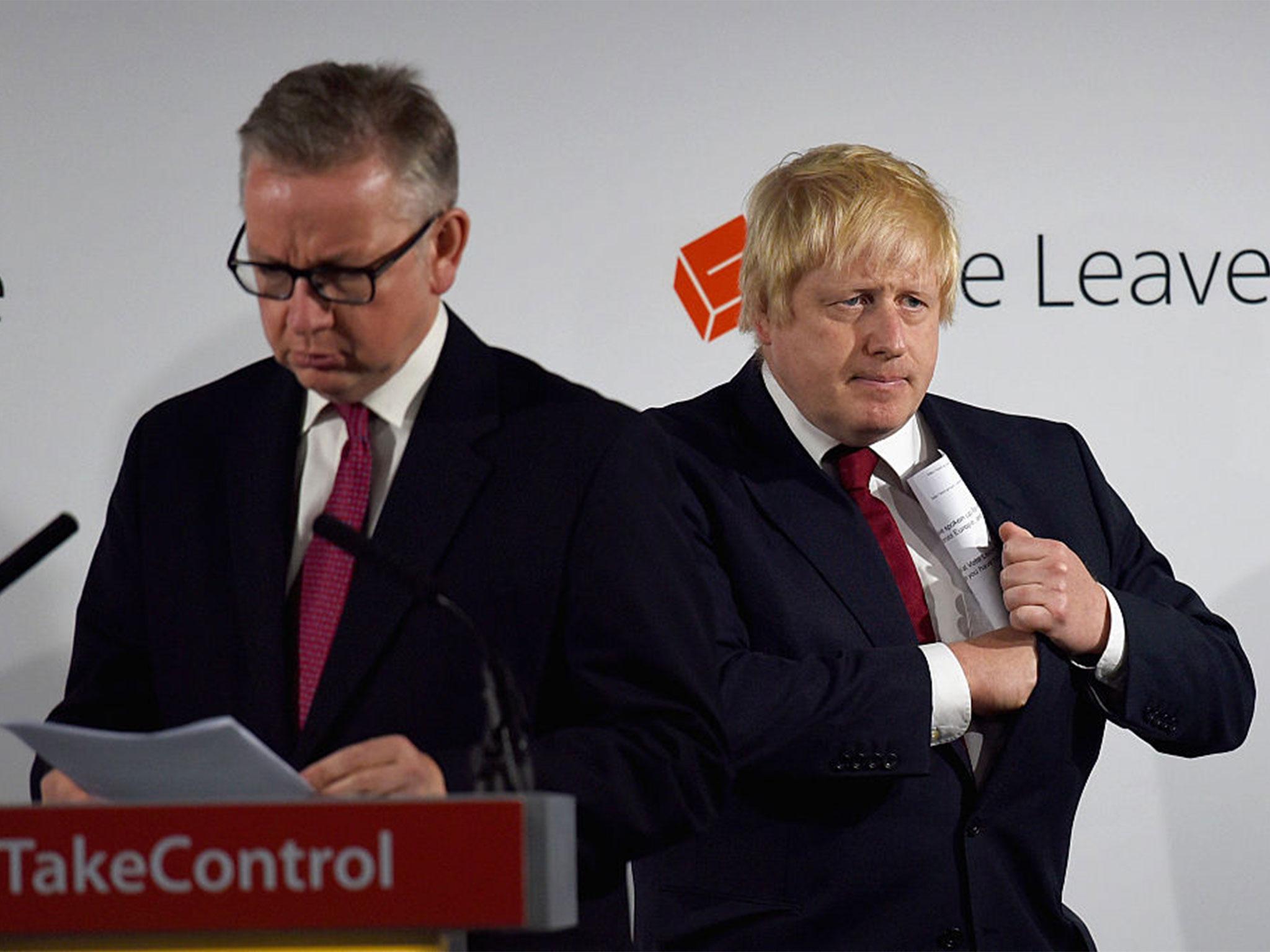How to deliver a second EU referendum
Many people already seem to regret voting to leave the EU, and other countries have changed their minds about referendums before. All we need is a fresh democratic mandate


Your support helps us to tell the story
From reproductive rights to climate change to Big Tech, The Independent is on the ground when the story is developing. Whether it's investigating the financials of Elon Musk's pro-Trump PAC or producing our latest documentary, 'The A Word', which shines a light on the American women fighting for reproductive rights, we know how important it is to parse out the facts from the messaging.
At such a critical moment in US history, we need reporters on the ground. Your donation allows us to keep sending journalists to speak to both sides of the story.
The Independent is trusted by Americans across the entire political spectrum. And unlike many other quality news outlets, we choose not to lock Americans out of our reporting and analysis with paywalls. We believe quality journalism should be available to everyone, paid for by those who can afford it.
Your support makes all the difference.Here’s what Boris Johnson wrote back in March: "There is only one way to get the change we need, and that is to vote to go, because all EU history shows that they only really listen to a population when it says No."
He may have had in mind the second Irish referendum on the Lisbon treaty which followed after the Irish voted "no" in the first – and secured further concessions from the other Member States.
“Say ‘no’ for a better ‘yes'” isn’t bad as a negotiating ploy. But it’s not much of a campaigning slogan. The Leave camp ditched it for "Take Back Control".
And the rest is recent history.
It wasn’t only Boris who saw the attractions of a second referendum. So did Nigel Farage. Speaking to the Mirror he said this: “In a 52-48 referendum this would be unfinished business by a long way. If the remain campaign win two-thirds to one-third that ends it.”
It’s fair to say he meant a 52-48 win for Remain rather than that very vote for Leave. But, you may think, what’s sauce for the Goose…
But could we have a second referendum after a Leave vote? And what might it take to bring such a thing about?
Let me begin my task by clearing away a little undergrowth.
The referendum result creates a democratic imperative for the UK to depart but, as the great legal blogger David Allen Green has set out here, it doesn’t create a legal one. The legal one follows not from the referendum result but from our decision to trigger the exit procedure in Article 50 (which I turn to below). Some have mooted that our Parliament could simply ignore the referendum result. Although that may be right in legal theory I don’t, myself, consider it a practical likelihood. But, what democracy has commanded shall be done it can also command to be undone. Or, to put the matter less grandly, a second vote, this time for Remain, would undo the democratic imperative of the first.
So I see a refreshed democratic mandate as key.
How might such a thing be delivered?
I can see two routes.
First, were we to have an early General Election fought by one party on an explicit Remain platform and were that party to prevail it would, I think, amount to a ‘refreshed democratic mandate’. The electorate would have spoken such that the result of the Referendum would be superseded.
Second, even without such a General Election, Parliament might decide that circumstances had changed sufficiently, as in Ireland, to put the proposition to the electorate again.
What would make these routes more or less likely?
The General Election route requires that three things happen.
First, there would need to be a General Election. The Fixed Term Parliament Act 2011 requires that (absent a no-confidence motion in the Government) the motion for an early general election achieve a two-thirds majority in the House of Commons. But if the Government took the view that such was desirable – and several Brexiteers have already mooted such a thing – it is unlikely that the Labour Party would stand in its way.
Second, one or other side would have to stand on an explicit Remain platform. That would not be the Conservative Party. And such also seems inconceivable under Labour’s present leadership. Writing to Labour members on the 24th of June Jeremy Corbyn said this: "After yesterday’s European referendum, politicians of all parties must listen to and respect the vote.
"Millions of voters have rejected a political establishment that has left them behind. Communities that have been hardest hit by government cuts and economic failure have voted against the status quo."

This is not the language of a Leader who wishes to Remain. But Jeremy Corbyn is to face a leadership challenge and the overwhelming majority of the Parliamentary Labour Party (PLP) – and indeed its voters – support Remaining. Were a new Labour leader to be selected, Tim Farron’s pitch for a pro-EU social democratic coalition might fall on fertile ground. And, of course, Nicola Sturgeon has made plain her intention to keep Scotland in the EU.
And, third, that Remain platform would need to win. You will have your own views about the likelihood of that prospect. There is already much anecdotal evidence for Buyers' Remorse (or 'Bregret') about leaving. And if the Project Fear predictions of the poor, derided “experts” come to pass it is possible that the population might come to welcome an opportunity to Remain.
The other possible route to a second Referendum is much simpler. Again, it has three steps.
First, it would require a recognition on the part of the EU that the concerns of the local electorate be met with concessions. The public could, I think, only sensibly be confronted with the In/Out question afresh if the circumstances had changed since last it was asked. This was, in effect, Boris Johnson’s “Say ‘no’ for a better ‘yes'" strategy. This has, in fact, happened on three occasions: Ireland (twice: Lisbon and Nice) and Denmark (once: Maastricht).
Second, there must be a desire on the part of the Government of the day to deliver a second referendum. This will in large part be contingent on whether the public’s attitude to the prospect of Leaving sweetens or sours: Buyers’ Remorse again.
An EU contemplating an existential crisis of its own in consequence of the UK’s likely departure – perhaps facing demands from other Member States for referendums of their own – might increase the pressure on our Government by dangling concessions directly in front of the UK public. You might even think that this was Wolfgang Schäuble’s intention when he talked of the UK having “associate member” status. You might also read into Boris Johnson’s comments on Friday morning a desire to keep this door open: "In voting to leave the EU it’s vital to stress that there’s no need for haste,"he said. "And as the Prime Minister has just said nothing will change in the short term except work will begin on how to extricate this country from the supranational system. As the Prime Minister has said there is no need to invoke Article 50."

Any or all of these circumstances could create huge public pressure for the question to be put afresh. Pressure no sensible Government could ignore.
Third, a renewed Referendum would have to be won. But, as this rather elegant piece by Ece Özlem Atikcan explains, they do tend to be.
Of course, had we left in the meantime, all of this would be academic. And the timing is important. Too soon and we may not have time to see Buyers’ Remorse. Too late and it may be difficult to derail the process. Again, a close reading of Mr Johnson’s comments suggest a sensitivity to the possibility of a golden moment.
If you assume this golden moment arises before we have triggered Article 50 (and, for reasons I don’t want to get sidetracked by why I regard as hollow the threat to treat the Referendum result as triggering Article 50), we can simply ignore such conditions as it imposes. But what if you assume that, under pressure from an EU with problems of its own to resolve, we have already triggered the process?
Were you to read Article 50 as you might a piece of domestic law, you would note it has no reverse gear. As David Allen Green has pointed out, once you start the process, you’re on the way to the exit door. But for myself I have little doubt that the process can be abandoned once started. As a general proposition, in my experience, EU law bends much more to pragmatism than does English law. This was also a point made by Professor Derrick Wyatt QC in his oral evidence to the House of Lords Select Committee on the European Union. And Sir David Edward, former judge of the European Court of Justice, giving oral evidence on the same day said:
It is absolutely clear that you cannot be forced to go through with it if you do not want to.
Perhaps we might all feel differently if Article 50 stated explicitly that a member state, having triggered the Article 50 process, cannot abandon it. But it doesn’t; it’s just silent on the issue.
So. Let me sum up.
Form your own view, but I think Buyers’ remorse is likely. I think the electorate will come quickly to appreciate that the ‘look behind you’ of the Remain campaign did not warn of an approaching pantomime villain. Rather, there is a very real likelihood of a very meaningful deterioration in the lives of a great many people. The fruits of victory may quickly turn to ashes in the mouths of Brexiteers. It is, I think, likely that the EU will seek to engage the UK public directly – and I very much hope they do. And, although here I speculate, I do sense an ongoing ambivalence on the part of Boris Johnson to the creature he has delivered. Where lies his place in history on delivering a disaster to a country he loves? Mix these ingredients together and you have the recipe for a refreshed democratic mandate for Remain.
Jolyon Maugham is a QC specialising in tax. He blogs at waitingfortax.com and you can follow him on Twitter @JolyonMaugham. This post originally appeared on his blog and has been republished with permission.
Join our commenting forum
Join thought-provoking conversations, follow other Independent readers and see their replies
Comments